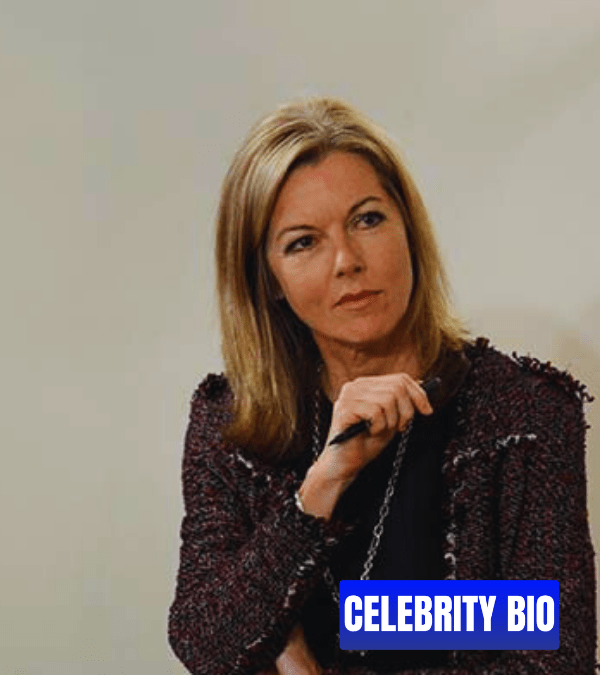Introduction
For more than two decades, Mary Nightingale has been one of the most familiar faces in British broadcasting. As the anchor of ITV News at Six, her calm, composed delivery has helped audiences make sense of everything from political upheavals to royal ceremonies.
Recently, however, a new story has emerged — not about the world, but about Mary herself. Search engines are filling with queries such as “Mary Nightingale Illness”, suggesting viewers are worried about her health. This curiosity is understandable: when a public figure suddenly disappears from our screens, speculation often fills the vacuum.
But is there truth behind the rumours, or are they the by-product of online culture? In this feature, we’ll unpack the reality of Mary Nightingale’s wellbeing, examine how rumours spread, and look at the bigger picture: what happens when audiences feel entitled to know every detail of a presenter’s private life.
Who Is Mary Nightingale?
To understand why so many people care about these rumours, it helps to remember Mary Nightingale Illness place in British media.
- Born: 26 May 1963, Scarborough, Yorkshire
- Education: Bedford College, University of London (English)
- Career Highlights:
- Early work on travel programmes such as Wish You Were Here…?
- Covered major sporting events, including rugby and football tournaments.
- Became anchor of ITV News at Six in 2001.
- Early work on travel programmes such as Wish You Were Here…?
Unlike presenters who bounce between networks, Nightingale has been a constant presence at ITV for more than two decades. That kind of consistency builds trust, and trust breeds familiarity. Which explains why her occasional absences cause such concern.
Why People Search for “Mary Nightingale Illness”
The question isn’t just about Mary. It’s about the relationship between viewers and presenters. We spend hours with these figures — often more than with friends or family — and so their absence feels personal.
Triggers for the rumours:
- Absences from ITV News — even a short break leads to speculation.
- Visible ageing — unfair assumptions when a broadcaster’s appearance changes.
- The internet effect — small observations get magnified into “trending topics.”
In truth, Mary Nightingale Illness has never publicly confirmed any illness. Which means much of the discussion is based on assumption, not fact.
The Reality of Broadcasting and Health

Behind the polished set and calm tone, live news is one of the most demanding jobs in television.
- Stress levels: Studies have shown that live broadcasters experience spikes in adrenaline similar to emergency responders.
- Workload: Anchors often prepare for hours before going on air, juggling scripts, breaking updates, and production notes.
- Emotional toll: Reporting on wars, disasters, and deaths takes a psychological impact over time.
Given this, it’s unsurprising that presenters take breaks — but audiences often misinterpret them as signs of serious illness.
Mary Nightingale’s Choice: Silence Over Speculation
Unlike some public figures who address health speculation head-on, Mary Nightingale Illness has chosen a different path: silence. She has not confirmed any illness, nor has she felt the need to justify her absences.
This approach aligns with her professional image: she is there to deliver the news, not become it. But in the modern media environment, silence can also feed speculation, as audiences fill the gaps with guesses.
Case Studies: Other Presenters Facing Health Rumours
Mary’s experience isn’t unique. Several other British broadcasters have faced similar speculation:
- Fiona Bruce (BBC) — often the subject of social media chatter about her appearance, which some misinterpret as health decline.
- Huw Edwards (BBC) — before his mental health struggles were confirmed, online rumours circulated for months.
- Kate Garraway (ITV) — faced intense public scrutiny, but unlike Nightingale, she chose openness by sharing her husband Derek Draper’s illness journey.
These cases show different approaches: while some broadcasters are forced to explain, others retreat into privacy. Both choices carry consequences.
Parasocial Relationships: Why Viewers Feel Entitled to Know
Psychologists use the term parasocial relationship to describe the one-sided bond audiences form with media personalities. In the case of Mary Nightingale Illness, viewers feel they know her: she has been in their living rooms for decades.
This sense of intimacy creates expectations. When she is absent, viewers feel not just curiosity, but worry — as though a family member is unwell.
Parasocial bonds explain why illness rumours spread so quickly online: audiences aren’t just consumers; they are emotionally invested.
The Ethics of Reporting on Illness
This raises an ethical question: should the media report on unverified illness rumours about presenters?
On one hand, transparency can reassure audiences. On the other, it risks violating privacy and reducing presenters to subjects of gossip rather than professionals.
Mary Nightingale Illness decision not to engage suggests she values boundaries. For her, the story remains the news — not her personal life.
What the Rumours Reveal About Age and Gender in Broadcasting
There is also a deeper, often unspoken issue: aging women in the media face more speculation about illness than men.
- Male anchors are often allowed to “age gracefully” without comment.
- Female anchors are scrutinised more closely for appearance, energy, or absences.
- Health rumours sometimes act as coded language for ageism.
Mary Nightingale Illness experience highlights this double standard. Her professionalism has never faltered, yet speculation about her health persists.
FAQs About Mary Nightingale Illness
1. Is Mary Nightingale Illness?
There is no official confirmation that she suffers from any illness.
2. Why has she been absent from ITV News?
Absences can be due to personal commitments, rest, or scheduling — not necessarily illness.
3. Has Mary spoken publicly about her health?
No. She has chosen to keep her private life separate from her career.
4. Is she still active on ITV News?
Yes. She remains a core presenter of ITV News at Six.
5. Why do illness rumours spread so quickly?
Because audiences feel emotionally connected to her and interpret absences as signs of poor health.
Conclusion
The rise of “Mary Nightingale Illness” as a search trend says more about us as viewers than it does about Mary herself. While speculation thrives online, the facts are clear: Mary Nightingale Illness has not confirmed any illness, and she continues to anchor ITV News with the professionalism that has defined her career.
In the end, perhaps the lesson is simple: we can care deeply about our favourite broadcasters without demanding every detail of their private lives.

